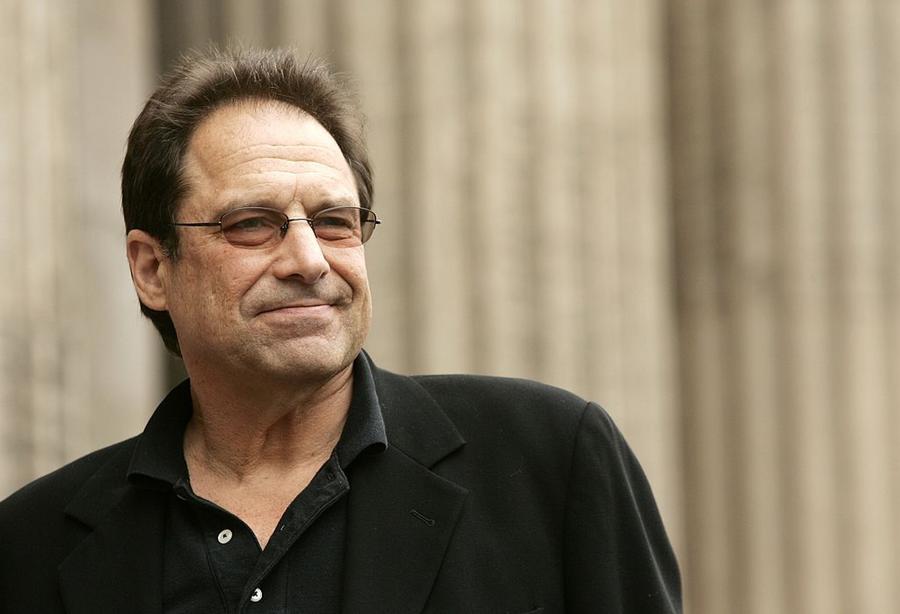David Milch at a Glance
David Milch’s Net Worth: A Tale of Triumph and Financial Turmoil
Introduction: The Rise and Fall of a TV Titan
David Milch is a name synonymous with groundbreaking television. The American writer and producer carved a legacy with iconic series like “Deadwood” and “NYPD Blue.” His career, spanning decades, earned him critical acclaim, multiple Emmy Awards, and a star on the Hollywood Walk of Fame. However, the narrative took a dramatic turn. This article delves into the compelling story of David Milch, examining his impressive achievements alongside the devastating financial consequences of his gambling addiction.
Early Life and Education: Seeds of a Creative Genius
Born on March 23, 1945, in Buffalo, New York, David Milch’s upbringing in a Jewish family laid the foundation for his intellectual pursuits. He attended Yale University, graduating summa cum laude with a B.A. degree. His academic prowess was evident in the Tinker Prize in English and his election to Phi Beta Kappa. Notably, Milch was a member of the Delta Kappa Epsilon chapter, alongside future U.S. President George W. Bush. Milch’s educational journey continued at the University of Iowa, where he earned a Master of Fine Arts with distinction from the Iowa Writers’ Workshop. To avoid the Vietnam War draft, he briefly attended Yale Law School, though he did not complete the degree.
Career Beginnings: From Academia to Hollywood
Milch’s professional journey began in academia. He taught English literature at Yale, where he collaborated with renowned figures like Robert Penn Warren and Cleanth Brooks on college textbooks. His early writing found its way into prestigious publications such as “The Atlantic Monthly” and the “Southern Review.” These experiences honed his storytelling skills, providing a transition to a television career.
“Hill Street Blues”: The Launchpad to Success
In 1982, Milch’s career catapulted forward with his script for “Hill Street Blues,” which became the episode “Trial by Fury.” This marked a significant turning point. He worked on the show for five seasons, first as an executive story editor and later as an executive producer from 1982 to 1987. The show was a success for Milch, earning him two Writers Guild Awards, a Humanitas Prize, and a Primetime Emmy Award. In 1987, he co-created “Beverly Hills Buntz,” a comedy-drama spin-off of “Hill Street Blues,” though the show was short-lived.
“NYPD Blue”: Crafting a Television Phenomenon
Milch’s next major triumph came in 1993 with “NYPD Blue,” co-created with Steven Bochco. The police procedural series became a television phenomenon, running until 2005. Milch served as the executive director for seven seasons and collected three Primetime Emmy Awards. During his time with “NYPD Blue,” Milch further extended his footprint in the genre. In 1997, he co-created the police drama “Brooklyn South” with Bochco, Bill Clark, and William M. Finkelstein. He also co-created “Total Security” in the same year, but this series was short-lived.
“Deadwood”: A Critical and Creative Peak
In 2001, Milch created the show “Big Apple,” a crime drama that aired on CBS. From 2004 to 2006, Milch produced “Deadwood” for HBO. Serving as the creator, writer, and executive producer, Milch took the show to another level, with its rich dialogue and complex characters. The series ended after three seasons. A film based on the series was released in 2019, receiving critical acclaim and a nomination for the Primetime Emmy Award for Outstanding Television Movie. Milch earned two Primetime Emmy Award nominations for his work.
Gambling and Financial Ruin: A Shocking Downfall
Despite his professional triumphs, Milch’s personal life took a devastating turn due to a severe gambling addiction. His net worth plummeted due to gambling losses. It was revealed that he and his wife, Rita, accumulated a staggering -$17 million in debt. This revelation was made public in a 2016 lawsuit. The couple was forced to sell off significant assets, including real estate and valuable possessions, to manage their financial obligations. Milch reportedly lost approximately $25 million at the Santa Anita horse racetrack over a decade. Rita had no idea of the extent of the losses. The couple was forced to downsize, and Rita had to place her husband on a $40-per-week allowance.
In early 2011, Rita was called to a meeting with her husband’s business management company, NKSFB, where she learned of the financial devastation. She filed a lawsuit against NKSFB for allegedly keeping her in the dark about the magnitude of her husband’s losses despite her seeking financial guidance. The couple sold their properties, including a $4.8 million home in Brentwood, California, and an $8.9 million estate in Martha’s Vineyard, Massachusetts, to pay off debts. Rita also organized garage sales and sold art, jewelry, and other valuables to raise capital.

Photo by Vince Bucci/Getty Images
Personal Life and Health: Battles Beyond the Screen
David Milch married Rita Stern in 1982, and they have three children together. Aside from his creative endeavors, Milch enjoyed horseracing, and he owned thoroughbred racehorses. In 1992, his horse, co-owned with Mark and Jack Silverman, won the Breeders’ Cup Juvenile. In 2001, his horse Val Royal won the Breeders’ Cup Mile.
Milch has also dealt with significant health challenges. In the 1990s, he developed a heart condition. During the filming of “NYPD Blue,” he suffered a heart attack. David has also stated that he has bipolar disorder. In 2015, he was diagnosed with Alzheimer’s disease, just before he began writing the “Deadwood” film script. As his health declined, Milch moved to an assisted-living facility. In 2022, he published a memoir titled “Life’s Work.”
Legacy: Enduring Impact on Television
Despite the financial setbacks and health issues, David Milch’s impact on television remains undeniable. His groundbreaking work on “NYPD Blue” and “Deadwood” has set new standards for character development, realism, and writing. Milch’s ability to craft complex narratives and explore the human condition has influenced countless writers and producers. His legacy transcends the screen, and his body of work guarantees his place as one of television’s most significant figures.

